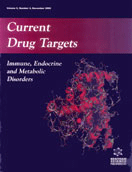Abstract
Cancer specific immunity elicited with vaccines has traditionally focused on the activation of the CD8 cytolytic T lymphocyte (CTL) often involving direct stimulation of immunity using HLA-class I binding peptide epitopes. Recently it has become clear that activation of the CTL immune effector arm alone is insufficient to mediate an anticancer response. A major problem is that CD8 T cells alone can not be sustained without the concomitant activation of CD4 T helper (Th) cells. In fact, it is now widely recognized that the Th cell regulates nearly all aspects of the adaptive immune response. In addition, Th cells can recruit the innate immune system during immune augmentation. Therefore, the focus of the immune response in cancer has shifted away from activating CTL immunity alone to activating Th cell immunity alone or concurrently with CTL. Evidence suggests that activating the Th cell is sufficient to get a complete adaptive immune response because, once activated, the Th cell will elicit endogenous CD8 T cell and humoral immunity. In this review, we discuss the role of the Th cell in the adaptive immune response to cancer, how peptides that are capable of activation of Th cells are identified, and the clinical translation of newly identified candidate Th cell peptide epitopes to human cancer specific vaccines. Over the next decade, studies should begin to further define how we can manipulate the Th immune effector arm to achieve effective antitumor immunity.
Keywords: Vaccines, CD4 T cell, Helper T cell, immunotherapy, epitope, algorithms, tumor antigen, cancer
 2
2


















